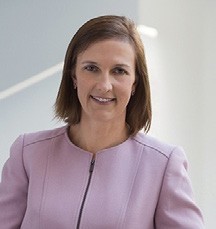ONCOLOGY
To achieve diversity in clinical trials, patient-led drug development is key
Amy McKee from Parexel considers the need for diversity in oncology clinical trials in order to fully realise the potential of personalised medicine

A close friend was recently diagnosed with multiple myeloma. We discussed her treatment options and as a young and otherwise healthy person she is the perfect candidate for a clinical trial with an open site geographically close to her. I suggested this to her and then to her treating physician, however the answer from her doctor was a resounding no. The doctor did not even look up the study nor offer clinical trials as a treatment option to my friend, nor did he provide rationale as to why. This experience is one of many that has made me think critically about the driving factors inhibiting patients from participating in and being selected for oncology clinical trials and what we as an industry must do to eliminate these barriers – ultimately enabling access to more patients.
This shift begins and ends with patient-led clinical development –protocols and operations that reduce the geographical, financial and practical burdens patients face and enable them to participate in clinical trials. While it may seem obvious both ethically and scientifically that clinical research participation should benefit and represent all individuals, far too often this is not the case. For example, if we examine oncology clinical trial participation, Black and Latinx trial participants consistently have been underrepresented based on what we can see in both cancer incidence and mortality in the US.1 Furthermore, of the 48 novel drugs approved in the US in 2019, Black patients were not adequately represented, with White participants overrepresented.2,3
Despite an increasing amount of oncology studies based on molecular markers, these challenges and inconsistencies prevent the promise of personalised medicine frombeing fully met. As an industry, we must remove barriers to clinical trial participation to ensure patient populations represented in trials reflect the real world. Only with this can we achieve truly personalised medicine.
Clinical research organisations must consider patients’ specific molecular markers for peak trial success
Biomarker strategy is becoming an increasingly critical step in strengthening decision-making related to clinical trial design and across the field of oncology; more studies are based on molecular markers than ever before. For example, the NCI-MATCH (Molecular Analysis for Therapy Choice) trial launched in 2015 and was a genomically driven precision oncology
platform trial that enrolled patients with solid tumours into signal-seeking, phase 2 cohorts based on a genomic alteration matched to a therapy targeting that alteration. The study screened almost 6,000 patients and ran 38 cohorts with different alteration/therapy pairs. For the initial 27 cohorts, seven (25.9%) met the signal-seeking threshold to recommend further development.4
There is strong evidence that drugs developed with a biomarker for the selection, stratification or enrichment of clinical trial populations move more swiftly through regulatory and payer approvals. But just as CROs must consider patients’ specific molecular markers when designing studies to enable peak trial success, the most effective precision medicine in oncology trials must also ensure accessibility for all patients.
Barriers to clinical trial participation limit the potential of personalised medicine
While both our scientific community and society recognise the importance of diverse representation in clinical trials, the issues that persistently impact study populations are complex and involve many inequities related to both opportunity and access. For many patients, transportation, time off from work and child/dependent care can keep them from participating. Consequently, study populations that lack diversity ultimately weaken the investigators’ ability to understand the safety, efficacy, effectiveness and value of potential new medications in a way that encompasses our entire population.
Clinical trials are intended to support the accurate labelling of an approved therapy so prescribing practitioners will understand the benefits and risks of a therapy and be able to convey this to patients. We need to enrol the same diverse patient population that eventually will be sitting in front of practitioners as they both consider if a therapy is right for them. By improving diversity in clinical trials, we can answer those questions in the pre-market period and not rely on patients to guess whether a therapy will provide the same benefits and present the same potential risks.
To achieve truly personalised medicine, our work must reflect the real world
Greater diversity and inclusion in clinical trials is possible. However, our success depends on patient-led drug development.
By placing patients at the centre of our approaches, and collaboratively engaging with patients representing a diversity of races, ethnicities and cultures as part of our trials, we can carve a new path forward to effectively improve diversity in clinical research, which will in turn help us fully realise the potential of personalised medicine.
References
- Loree JM, Anand S, Dasari A, et al. Disparity of race report and representation in clinical trials leading to cancer drug approvals from 2008 to 2018. JAMA Oncol 2019;5(10):e191870
- Woodcock J, Anagnosadis E, Lolic M. Center for Drug Evaluation and Research, U.S. Food & Drug Administration. (2020). 2019 Drug Trials Snapshots Summary Report
- Visit: kff.org/other/state-indicator/distribuon-by-raceethnicity/
- Visit: doi.org/10.1038/s41591-023-02379-4

Dr Amy McKee is chief medical officer and global head, Oncology Center of Excellence for Parexel, providing patient-focused medical and scientific leadership globally in support of the company’s phase 1 to 4 clinical trials. Amy joined Parexel in 2019 and most recently served as senior vice president and head of Regulatory Consulting Services. In this role, she has led innovative collaborations to utilise novel endpoints in clinical trials and incorporate real-world evidence into successful regulatory submissions as well as oncology dose optimisation and master protocol and platform trial designs to accelerate clinical development. Before joining Parexel, Amy spent 11 years in the US Food and Drug Administration, most recently as deputy center director, Oncology Center of Excellence (OCE) and supervisory associate director, OHOP, CDER.